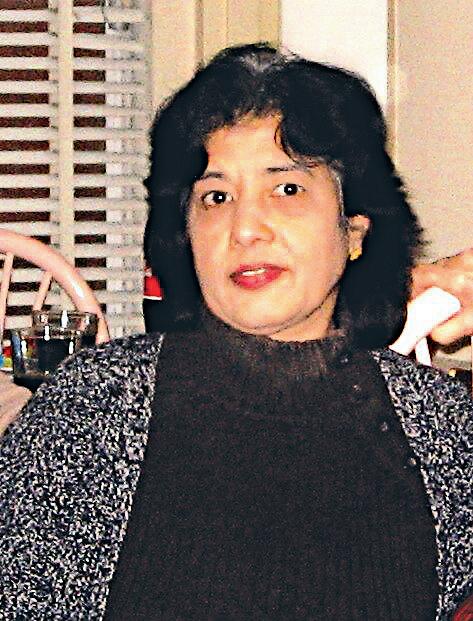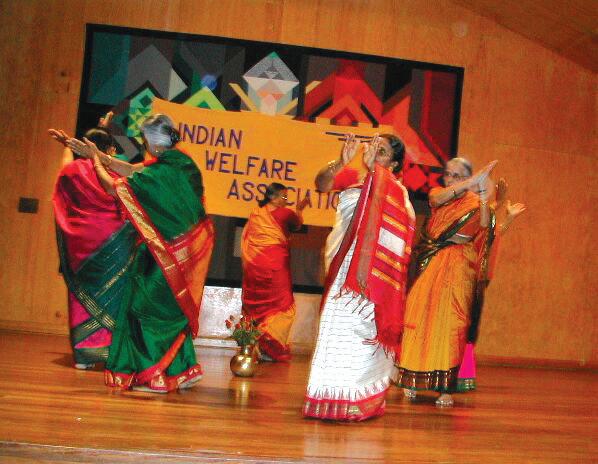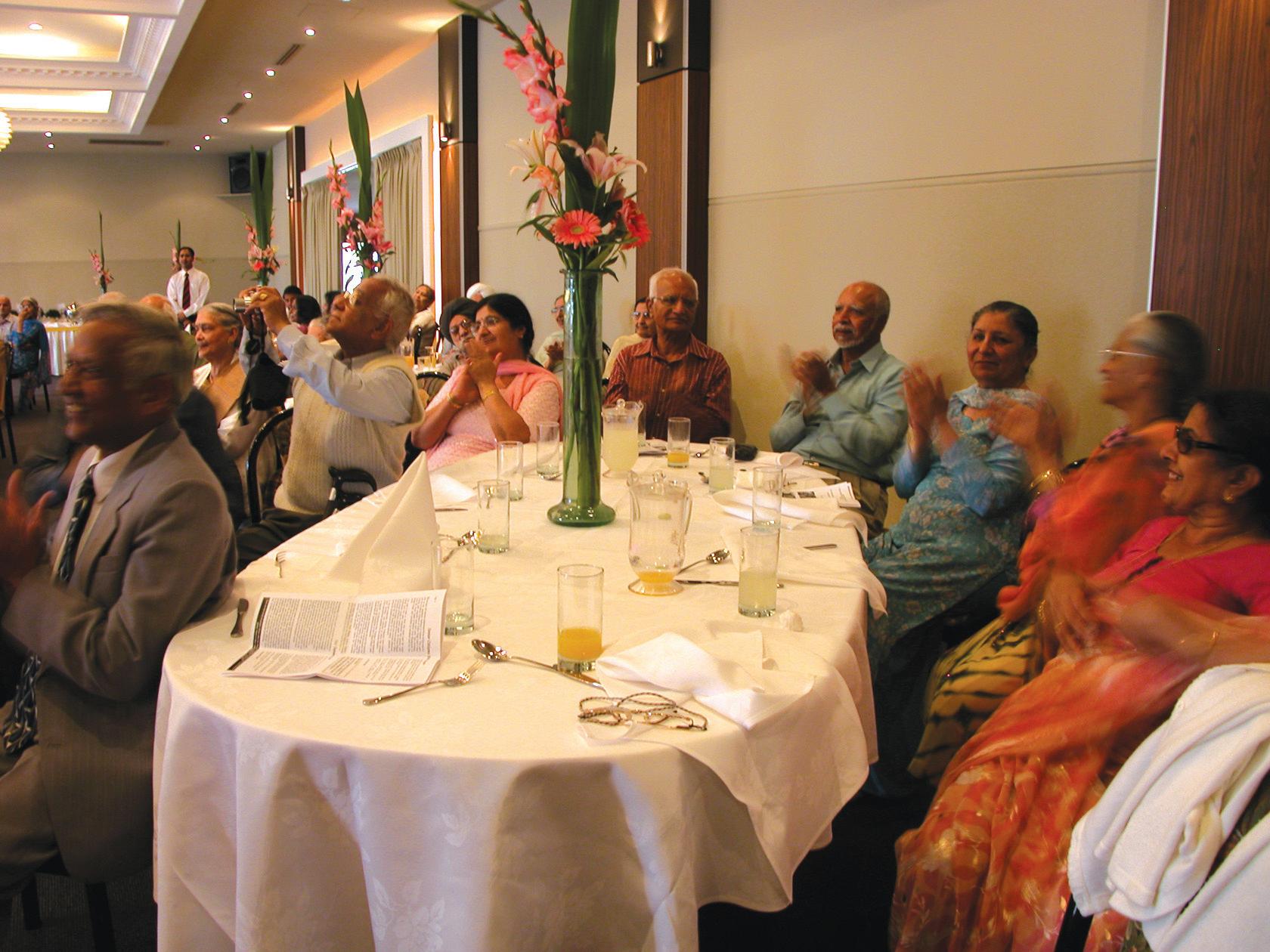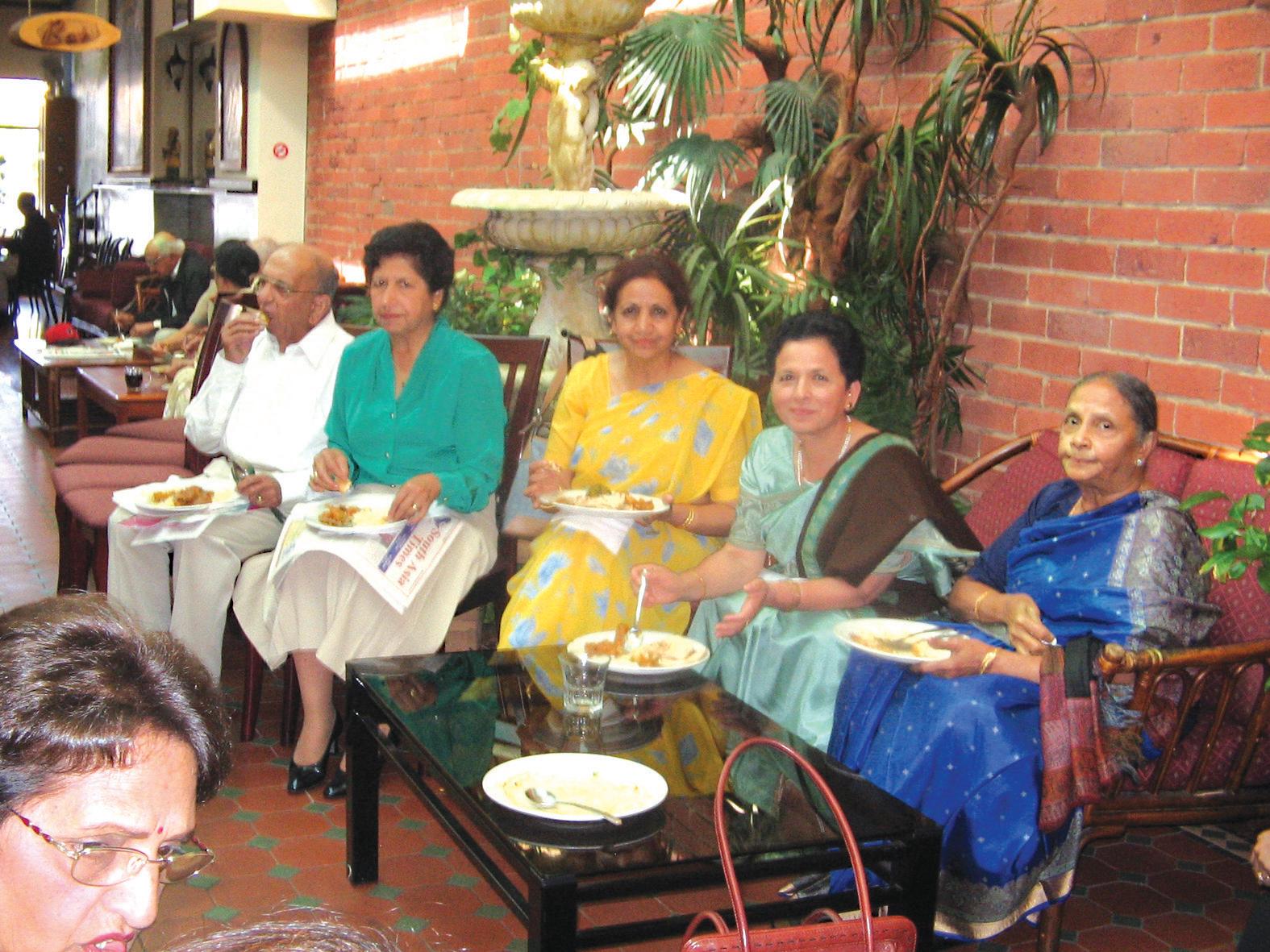
10 minute read
More care for our
from 2010-03 Sydney (1)
by Indian Link
BY SUDHA NATARAJAN
An independent survey was conducted among seniors of subcontinent origin residing at different locations in Sydney, to get an insight into their pace of life, problems and requirements.
70 respondents between the ages of 65-89 were interviewed over a period of two months. 23 males and 47 females who have been living in Australia from 3 to 35 years offered their feedback on their lifestyle here and the problems the aged community faces. The respondents came from different cultural backgrounds, speaking languages like Hindi, Tamil, Gujarati, Punjabi, etc. and most live with their children.
Below are the findings of the survey.
Country-wise demographics
Those interviewed were:
Fiji Indians: 10
South/East African Indians: 12
Sri Lankan: 4
Indian: 38
Singaporean: 1
New Zealand: 5
Health issues
All respondents have age associated problems. Diabetes, high blood pressure, moderate to severe arthritis resulting in limping, knee cap replacements, fragile bones, hearing disability, diminishing sight. Some have heart problems, some have even undergone bypass surgery.
(The parents) live with the daughter and son-in-law rather reluctantly, but living alone is something they cannot bear to think of or imagine
Other issues
* Loneliness due to demise of partner, resultant depression, frailty, disability due to age
* Decreased mobility, lack of culturally appropriate care support other than by family members.
* No language-based respite/day care provisions in the vicinity
* Isolated due to language barrier and lack of transport and social contact
* Lack of social companionship and community togetherness
* Concern about personal safety, particularly when using public transport
* Tired of being used for child care and need respite from this responsibility
* Culturally sensitive, generally vegetarians
* Prayer spots, congregation, temples few and far apart
* Ageing carers
* Accommodation with sons and daughters and their families – lack of space and independence, high need for HACC services
Need for a Community House
Social isolation encompasses both social and emotional isolation - that is, low levels of social participation and the subjective experience of loneliness. There are many individual, social, cultural and environmental factors influencing a person’s connection with their community. These factors include relocation, being a carer, living in a rural or remote area, having low social confidence and being
Some factors more commonly impact older people than other age groups. These include leaving the workforce; physical disability and ill health; loss of relationships and loss of transport options.
It is important that older people have the opportunity to be socially connected and are encouraged to participate in community life. There is an association between communication and interaction with others and mental and physical well being. This project intends to identify an innovative, sustainable and evidence-based model that can reduce social isolation in older people. This model will also contribute to relief of carers, who themselves have reached the age of retirement.
The facts
Here is evidence of a growing ageing population within the Indian subcontinent community in 2010.
* The 2006 census provides questionable evidence as to the increasing number of Indian subcontinent elderly. One has to take into consideration numbers by ancestry as well as headings under specific Indian languages, rather than just Indian ancestry. Including all these numbers offers a more realistic number of Indians in Australia.
* One must also take into consideration that those of Indian subcontinent origin could also hold South/East African, Fijian, Malaysian, Singaporean passports, having migrated to those countries in the 20th century.
backgrounds in the St George, Sutherland shire area helped to determine the issues of accommodation and social isolation, as well as physical and emotional issues.
* There are limitations in provision of services and facilities as the Census numbers do not really show the actual number of elderly Indians.
Common feedback
Some of the common responses to the survey dealt with problems faced by seniors. The respondents interviewed said: family, because there is no space in the car. To leave out one of the children creates an argument.
1. We were welcome to our children as long as we could take care of their babies. As they are grown up, we are redundant and hence a burden. Unwanted burden always creates annoyance.
2. Culturally, inter-dependency has been the way of life. Though we need space, we still need to be close to where our children live.
3. With teenagers around we are hard pressed for space. We get a definitive feeling that we are intruding into the privacy of our son/daughter-in-law as they cannot freely exercise their rights when their parents are hanging around.
4. We become an embarrassment as we start having incontinence and other health related problems. When we cannot hear or understand what they say, we feel left out.
5. I am given the downstairs bedroom as I cannot climb the stairs. Most of the time they do not come down except to eat (no meals eaten together). I eat alone as they go to work. I feel left out and my grandchildren do not like me to ‘hang around’ when their friends come over.
7. This is a two bedroom unit and one bedroom is used by my son and daughter-in-law, the other by me. The children used to sleep in my room, now they don’t. They are teenagers and they sleep in the lounge, which makes them unhappy. I feel I am taking their space and am a burden to the family.
8. I like to be independent and I am a contributory migrant. I burned my boats by selling all I had and opting for migration to be with my son. Now he and his family want their space and I want mine. I am over seventy and my health is not good. I am allowed to work, but who will give me a job? I like living alone, I am respected better by the family but the rent is high and my son has his mortgages to settle and a growing family to look after. I want to be of help but feel tired and drained. I do not wish to be a burden but I do not have any money.
Main issues identified
The survey also unearthed accommodation and culture-based issues faced by the seniors of subcontinent origin.


Of the 70 in the St George Sutherland shire region, 54 lived with their sons or daughters. Interdependency is culturally believed to be the basis of ideal lifestyle. Children depend on their parents, and as adults they take care of their old parents. For those without sons, daughters are the next alternative. They live with the daughter and son-in-law rather reluctantly, but living alone is something they cannot bear to think of or imagine.

Here are some situations.
For a widowed lady, her son protects and safeguards her interests. Not being a part of the household would bring about a loss of face for her and she would put up with any kind of discomfort to be with her son. Youngsters settled in Australia may have grown out of traditional marriages and may have chosen to marry someone from a totally different cultural background. In such situations, living together as a family becomes stressful for both sides, and more of a dilemma for the son or daughter as they are emotionally attached to both.
With limited financial resources, a widowed elder becomes depressed and there is emotional isolation even within the family. Many venture out only in the company of their children and this movement is limited as they are not included in ‘nuclear family’ outings. Low level of social participation and the expected experience of loneliness set in. Thus, social isolation encompasses both social and emotional isolation. Being from a different cultural and linguistic background in the midst of the surrounding community, they do not know where to get help and companionship.
Not wanting to be a burden, many elders limit their intake of food and other social activities that require the transport assistance of their children. Even if they make a friend, they are unable to ask them in for a visit, lest it might intrude into the privacy of their children.
There are seniors who do not know how long they will be entertained in the houses of their children. A them often. They dote upon their grandchildren but except for baby-sitting occasionally, they are not being encouraged to feel as a part of the family. Once again this leads to isolation and as they age, they are frightened of being placed in a nursing home along with people who do not speak their language and where they will not be able to even get the food they are used to. Many of the elderly are vegetarians.
One family has a multi-levelled residence. This is not the ideal place for an ageing mother with arthritis and knee cap problems. But she tries to manage. The grandchildren insist on having a puppy that runs around. The senior is scared that she may trip over the puppy and fall. She limits her movements to her room and faces severe social isolation. Service providers find such residences unsuitable to access, and hence she is unable to get help.
Community services options are not utilized by many because their children do not encourage strangers coming into their household, especially when they are away working. Language barriers force them to take home the flyers on information of services available, but these are simply ignored by their sons or daughters who are busy attending to their own lives. Seniors are also too timid to request for or take on facilities offered, lest their children take offence. Their children do not wish to get branded as incapable of taking care of their parents.
Of the seniors surveyed, five women were extremely depressed as they find living with the son’s or daughter’s family is not conducive and though secure, they feel that they are being a burden. Sometimes things go wrong because they try too hard to please. This has led to depression and associated health problems. They are in need of urgent help.
The other side of the coin
The survey also interviewed carers of the elderly, mainly sons and daughters who have the responsibility of caring for their parent/s.
Many were not keen to do the survey. The few who did said they had to bear the burden of caring for their elderly parent as well as catering to the needs of a growing teen. This is the sandwiched generation that eventually snaps, unable to bear the burden. A major issue for those who live in apartments is not having space for their growing family. Some families consist of a couple and two or three children, as well as the parents–in-law, all of whom live in a three bedroom apartment. As the children grow older, the space issue also grows bigger. Persuaded to sleep in the lounge,
Continued from page 23 makes the teenagers feel unhappy.
The grandparents are given a small room and as age advances, keeping the room tidy is difficult and problems of incontinence make the situation worse. Teenagers who are ‘frank’, comment upon such conditions which makes the sensitive seniors more withdrawn. They feel even the children they helped to look after now shun them. For the son or daughter, this is not a pleasant situation.
The male’s parents according to their culture, have the priority in staying with the couple. If the wife is also a single child, her parents may also want to stay with her. Such a situation creates unhappiness all around.
If a couple wish to travel once a year with their kids, there is no place to leave the parent, who needs care. There is no language-friendly respite care centre that caters to Indian seniors’ religious and vegetarian dietary needs.
The currently identified immediate needs are:
* Accommodation of one bedroom units or a shared house with facilities, for a minimum of 4/5 widowed ladies of Indian background; not an old age home but shared premises that provide an opportunity for independence and even supervised occupation.
* The house is to have a common hall that will accommodate a prayer/bhajan area where those resident or simply in for day care or temporary respite can socially interact.
* Language friendly day care/temporary respite arrangements where Indian subcontinent carers who work full-time can leave their parent for the day.
* Community food services to provide meals (vegetarian meals)
* Service providers to look after these clients in one venue. (Cost effective for both sides)
* Provide some occupation like addressing envelopes, packaging small gift items etc, folding flyers.
The solution
The way forward to help alleviate at least some of these problems is to begin by establishing an Indian subcontinent cooperative community house or senior care centre. This will support the social and emotional needs of the elderly in the community through its own specific cultural and linguistic backgrounds and religious and dietary needs.
Community housing too, in the form of supported or shard accommodation should be considered. It should be financially viable community housing that can be shared, with provision for religious needs and culturally appropriate dietary needs. A language friendly secure atmosphere with similar seniors, where service providers can be of assistance would be ideal. This will also be cost effective for the Government/ Community housing board as well as the other community service providers and health personnel.
RAIN’s efforts
Efforts are on at Resourceful Australian Indian Network Inc. (RAIN) to help improve the lot of seniors in the two locations in which the survey was conducted.
St George: St George Migrant Resource Centre in partnership with Resourceful Australian Indian Network (RAIN) is currently running a pilot project of day care facility once a month. RAIN is also trying to organise Indian clusters with nursing homes in this region.
Sutherland shire: Indian subcontinent seniors in remote areas have limited access to existing social and community services due to transport issues. They are needy of social interaction, community support and related information. Currently RAIN runs a seniors group in Stapleton Avenue community centre. RAIN also plans to run a pilot project of day care in partnership with Gymea Community Aid and Information Services.
RAIN Inc has set up a Senior Care Fund to purchase a property which will accommodate the much needed community housing project. Fund raising programmes are being organised, one of which will be an Indian bridal collections fashion parade and sit-down dinner on July 31 at the Marana Auditorium, Hurstville.
The Indian subcontinent community is awakening to the tremendous need that requires to be fulfilled for the comfort and wellbeing of our seniors. Apart from volunteer services and monetary contributions, we are also looking at businesses who will help engage seniors by paying for small services such as stuffing envelopes, folding flyers, etc., to help them enjoy a small income as well as be usefully occupied. All who are interested in supporting this cause can reach us at eager2rain@yahoo.com.au
The above survey was conducted in 2009 in a time span of two weeks. Survey forms were distributed to 56 seniors at Senior Citizens Centre, 91 Queens Road, Hurstville during 20082009 when the Indian subcontinent seniors met for their regular Thursday afternoon get-together session. The rest (14 seniors) were interviewed individually. All of these seniors live in St George region.











